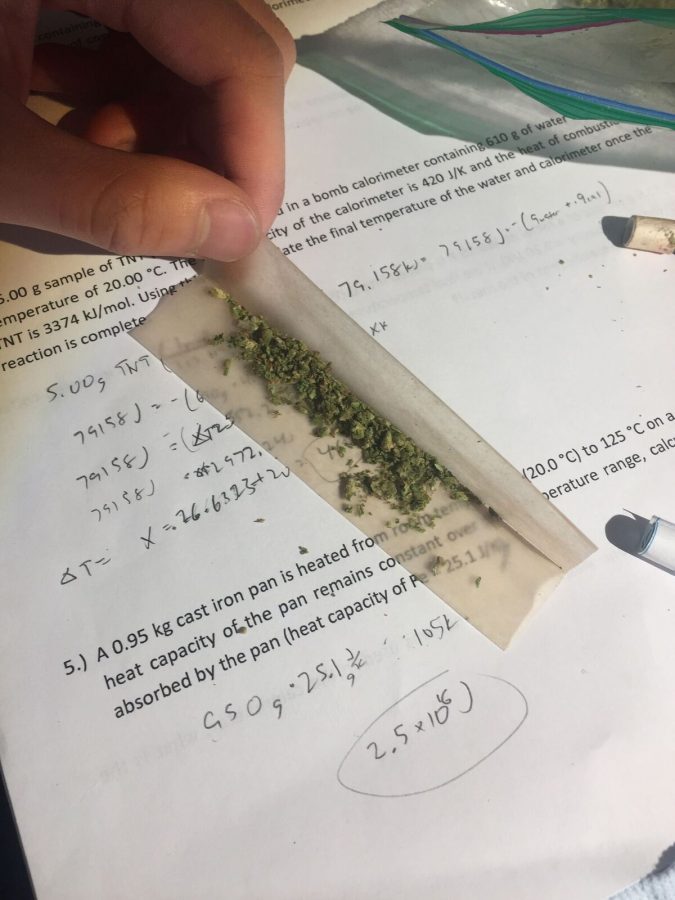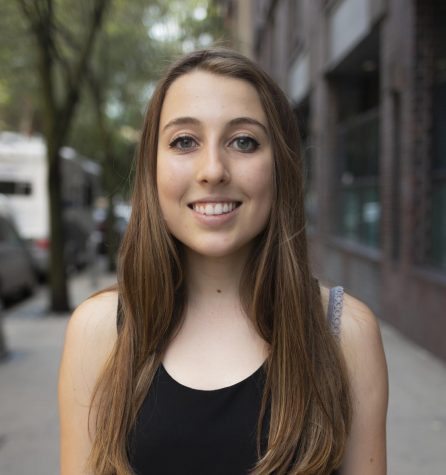Considering a Career in the Cannabis Industry
Smoking marijuana is slowly becoming less of a taboo.
November 21, 2016
Looking to go high places in the weed industry? Then the 2016 Cannabusiness seminar this weekend was the place to be.
The event, held in NYU’s Global Center for Academic Life, was brought to the university through a collaboration between NYU’s chapter of the Students for Sensible Drug Policy and the Cannabis Hemp Association, an organization that promotes responsible and legal mobilization of the cannabis and hemp business. A similar event was held at NYU last semester, but the seminar this year focused more on how students can get involved in the industry.
CHA founder Scott Giannotti helped plan the event at NYU and was also the keynote speaker at the seminar. Giannotti said that the SSDP contacted him about hosting the event, and they faced no resistance from the university. His main goal was to give students an informed perspective on how the cannabis industry can help the country as well as students themselves.
“I think that at this event you’re going to meet so many people who take this as a very serious business, and you’re going to hear stories regarding people’s healthcare which is going to inspire people to take this a lot more seriously,” Giannotti said. “When students find out about different opportunities that are available to them I think that they’re going to start to realize that this could be a growing industry for the future to get into because our economy isn’t exactly booming and it’s hard to find industries that are growing.”
Giannotti said that because the CHA has a big following of advocates and activists, he was not surprised at the event’s large turnout.
“Last year we had just a few people on the panel, a couple of them have a little bit of experience in the industry, but this year we have much more experienced people,” Giannotti said. “We have politicians, we have dispensary owners and we actually have someone from Colorado who owns a medical and a recreational dispensary — so we’re really getting people who have
direct experience.”
Giannotti said that aside from the business aspects of cannabis, not enough people know about its medical benefits. He believes that it is important to push towards legalization, because it will allow patients to have medication delivered to their homes and will help veterans suffering from post-traumatic stress disorder.
Steinhardt senior and SSDP treasurer Alex Lekhtman opened the seminar with a speech about the importance of decriminalizing all drugs. Lekhtman pumped up the crowd with a mix of cannabis jokes and motivational statements about the benefits of the cannabis industry.
Lekhtman said that the club hosts events like the Cannabusiness seminar to connect students to different chapters of SSDP and other drug policy organizations in and outside of New York City. The club aims to help students build a network with other people around the campus that are trying to reach the same goal. He thinks that having events like this is important to show students the potential of the cannabis industry.
“I think the most important thing is for people to see that cannabis is a real and viable industry,” Lekhtman said. “That it’s not some kind of niche, underground weird black-market enterprise, that it is something real. Whether they want to use it for medicinal purposes or other purposes, I think that it is important for people to see that cannabis can be as valid of an industry as the coffee industry.”
However, CAS freshman Arushi Sahay said that she found some of the claims made by speakers at the event unrealistic. She said that she felt there wasn’t enough factual evidence to justify the statements being made by those on stage.
“The speaker kept making claims about the economy being saved and kids getting good grades and then weakly linking them back to cannabis,” Sahay said. “In my opinion, legalizing all drugs doesn’t seem like the best idea, and total legalization seemed to be what the panel was advocating.”
Although Sahay found some of the ideas presented at the seminar a little extreme, she still thinks that cannabis should be legalized. She said the panel should have focused more on the actual legal cannabis industry, as that is how it was advertised.
Lekhtman believes that, although the new medical cannabis program in New York State is a step in the right direction, he also thinks it is too restrictive and wants to see it expand. He said it is up to students to make the difference now for the future of the country.
“We have a lot of great minds in this school,” Lekhtman said. “We have a lot of people who are into business, science and medicine and culture, I think that NYU can help pick up the reins and give this movement some momentum.”
Email Jemima McEvoy at [email protected].




























































































































































